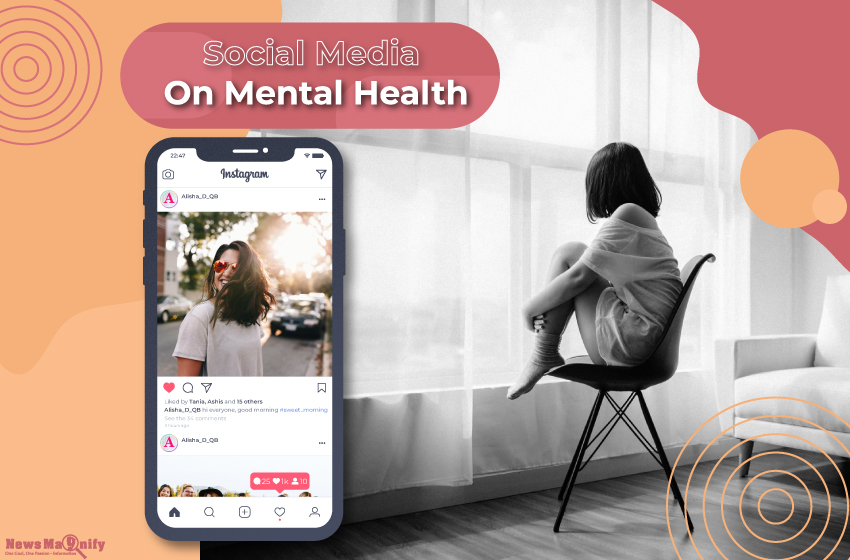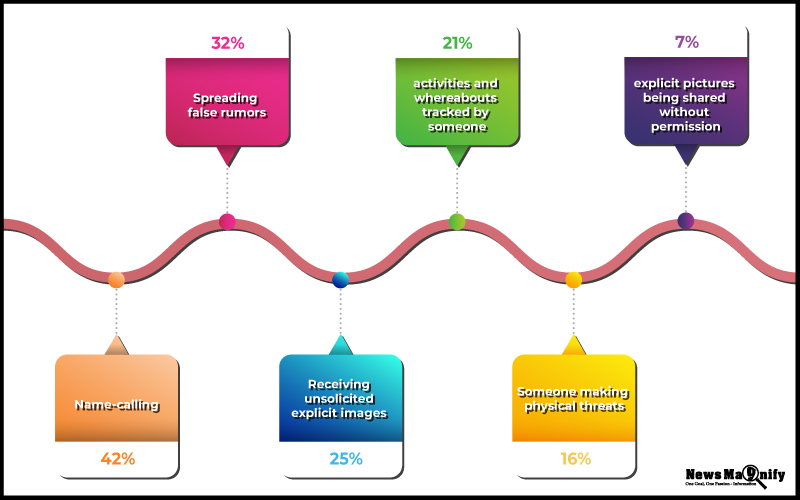
Impact Of Social Media On Mental Health We Cannot Deny
- Lifestyle Health
 Prasoon Soni
Prasoon Soni- June 30, 2022
- 1
- 8 minutes read
Social media is a technology that has a lot of social benefits. It enables people to connect and share, gather information and news, and even meet new people. But this can have a downside as well, especially for the youth. On this Social Media Day, we will have a look at the impact of social media on mental health of students.
The use of social media has been connected to depression, loneliness, and anxiety. Latest studies by The National Center for Health Research and Child Mind Institute suggest that people who use social media frequently feel less happy and more depressed with life in comparison to those who spend more time on activities related to the screen.
Let us learn what are the negative impacts of social media on mental health and how can that be used in a healthier way.
Statistics About The Impact Of Social Media On Mental Health
Let us now have a look at the social media and mental health statistics. The activities of the youth on social media hugely mirror their lives in the physical space: teenagers and children navigate the streams of the social networks, creating new relationships, enhancing existing ones, and at times ending or minimizing them. Whether virtual or in the original world, youths will face bad behavior, whether it is pointed at them or at something or someone else. How they revert to poor behavior is a chance for them to learn crucial life skills.
According to a recent research survey, one in six teenagers has experienced at least one of the six varied types of abusive behavior online. The statistics on social media use and mental health among young adults are mentioned below.
- Name-calling – 42%
- Spreading false rumors – 32%
- Receiving unsolicited explicit images – 25%
- Having their activities and whereabouts tracked by someone other than a parent – 21%
- Someone making physical threats – 16%
- Having explicit pictures of them shared without their permission – 7%

The survey found that 90 percent of the teens think online harassment is an issue for the people of their age, and among them, 63% identify it as a “big problem”.
Negative Impact Of Social Media On Mental Health
In the present world, many of us depend on social media platforms such as Facebook and Instagram to find and connect with people. While each has its own advantages, it is crucial to remember that social media can never be a replacement for the real world human connection.
It requires in-person contact with others to boost the hormones that lift away stress and make you feel healthier, happier, and more positive. Ironically, for a technology that is created to bring people closer, spending too much time and energy on social media can actually make you feel more isolated and lonely and give birth to mental health issues such as depression and anxiety.
If you are spending an excessive amount of time on social media and feelings of dissatisfaction, sadness, loneliness, and frustration are affecting your life, it may be the ideal time to re-examine your online habits and find a healthier balance.
Since social media is a relatively newer technology, there is much research to prove the long term impacts of social media on mental health. However, various studies have found a strong connection between heavy social media and an escalated risk for depression, loneliness, self-harm, anxiety, and even thoughts of suicide. So the negative impacts of social media on mental health include:
Inadequacy About Your Appearance Or Life
Even if you are aware that the pictures you are seeing on social media are manipulated, they can still make you feel unsafe about how you look or what is going on in your own life. Similarly, we are all aware that other people just tend to share the highlights of their lives, rarely the lower points that are experienced by all. But that does not lessen those feelings of dissatisfaction and envy when you are scrolling through a friend’s airbrushed pictures of their tropical beach holiday or reading about their exciting new promotion at work.
FOMO (Fear Of Missing Out)
While the fear of missing out has been around far longer in comparison to social media, websites like Instagram and Facebook seem to worsen feelings that others are actually having more fun or they are living a better life. The idea that you are missing out on several things can affect your self esteem, trigger anxiety, and drive even more use of social media. FOMO can force you to pick up your phone every few minutes to look for updates, or even compulsively respond to every alert, even if that implies taking risks while you are driving, missing out on sleep at night, or even prioritizing the interaction on social media.
Isolation
A research at the University of Pennsylvania found that increased usage of Snapchat, Facebook, and Instagram raises rather than reduces feelings of loneliness. Conversely, the research found that decreasing the usage of social media can actually feel less isolated and lonely to enhance your overall well-being.
Depression & Anxiety
Human beings need face-to-face contact to remain mentally healthy. Nothing decreases stress and boosts your quicker eye-to-eye contact with people who care about you. The more you prioritize interaction on social media, the more you are at risk to develop or even worsen mood disorders like depression and anxiety. So social media and depression are interconnected.
Conclusion
A repeating theme in the advice and resources about counteracting the negative impact of social media on mental health is to aim at the positive impacts of the technology. For teachers and parents, the challenge is to track children for signs of the negative impacts of social media. They must also assure that children are taught safe online approaches to stop them from becoming victims, whether by exposing their personal data or putting themselves at risk of any kind of abuse.


1 Comment
Excellent article. I definitely appreciate this website. Keep it up!